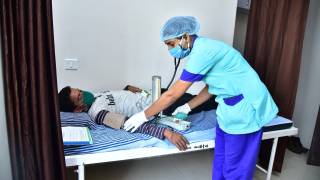Convalescent Plasma Produce Positive COVID-19 Treatment Results

A new study published by the New England Journal of Medicine (NEJM) focused on how effective convalescent plasma had been when treating COVID-19 patients.
In a retrospective study based on a U.S. national registry, these researchers found of the 3,082 patients included in this analysis published on January 13, 2021, death within 30 days after plasma transfusion occurred in (22.3%) of the patients in the high-titer group (27.4%) of the patients in the medium-titer group, and (29.6%) in the low-titer patient group.
This study found the association of anti–SARS-CoV-2 antibody levels with the risk of death from COVID-19 was moderated by mechanical ventilation status.
Among patients hospitalized with COVID-19 who were not receiving mechanical ventilation, transfusion of plasma with higher anti–SARS-CoV-2 IgG antibody levels were associated with a lower risk of death than transfusion of plasma with lower antibody levels.
In this study’s discussion section, the researchers added: These data were consistent with a mortality benefit associated with high-titer plasma administered earlier in the disease course.
Our findings are also consistent with aggregate data from observational studies and randomized trials of convalescent plasma and historical evidence regarding antibody therapy for infectious diseases.
And our data and those from other studies provide support for the use of anti–SARS-CoV-2 antibody assays as an indicator of COVID-19 convalescent plasma potency.
Our findings parallel the recent conclusions of a trial of the antiviral agent remdesivir (Vekurly). The clinical benefit was evident among patients who were not receiving advanced respiratory support and were absent among patients receiving noninvasive high-flow oxygen or mechanical ventilation.
In summary, these researchers stated ‘Besides age, the next two most important correlates of this risk are the receipt of invasive mechanical ventilation and admission to the intensive care unit (ICU), which occur late in the course of the disease, when the level of antibodies in the transfused plasma does not appear to affect the risk of death.
The US Food and Drug Administration (FDA) recently argued that a “totality of the evidence” suggested that convalescent plasma benefits would outweigh its risks. Given the lack of effective treatments, the FDA granted an Emergency Use Authorization (EUA) and guided the manufacture and use of convalescent plasma in hospitalized patients with progressive infection signs.
By contrast, a National Institutes of Health guidelines panel stated that “the data are insufficient to recommend for or against” the use of convalescent plasma.
And the Infectious Diseases Society of America and the AABB (formerly known as the American Association of Blood Banks) recommends that the use of convalescent plasma be limited to clinical trials, critically ill patients and those in the ICU are unlikely to benefit from transfusions of convalescent plasma. That convalescent plasma should be used as early as possible in the course of infection (preferably within three days after diagnosis) to achieve the best outcomes.
In a related editorial published by the NEJM on January 13, 2021, Louis M. Katz, M.D. offered these insights:
‘Passive immunotherapy has been used since the late 19th century, and in 1901, the first Nobel Prize in Physiology or Medicine was awarded for serum therapy for patients with diphtheria. During the 1918 pandemic, serum from convalescent patients was used to treat influenza, with some apparent success.'
Intravenous human immunoglobulin has revolutionized the management of immunoglobulin deficiency states.
Today, the use of immunoglobulins has been established for the prophylaxis and treatment of a variety of infections, including those with the respiratory syncytial virus, cytomegalovirus, and hepatitis B or hepatitis A virus.
More recently, passive immunotherapy has been evaluated for severe acute respiratory syndrome (SARS), Middle East respiratory syndrome (MERS), and Ebola virus disease.
The authors of that meta-analysis acknowledged the low quality of the available evidence regarding early treatment. Another meta-analysis of studies of convalescent plasma and hyperimmune immunoglobulin in patients with influenza A and SARS suggested a mortality benefit “when convalescent plasma is administered early after symptom onset.”
However, in a randomized, controlled trial, high-titer convalescent plasma from patients who had recovered from H1N1 influenza was ineffective against severe influenza A infection in hospitalized children and adults.
Observational studies have been more positive than randomized trials; some, but not all, of these studies, have suggested modest clinical effects and measurable surrogate virologic outcomes.
They have confirmed the safety profile of plasma transfusions. Still, they have some of the same issues as randomized trials, in addition to the potential biases and shortcomings inherent in observational studies.
At this time, convalescent plasma should be reserved for patients in whom the duration, severity, and risk of illness progression are similar to those in the patients in this trial.
Uncontrolled compassionate use of convalescent plasma in patients other than those with an early infection that is likely to progress to more severe illness should be discouraged, even though clinicians recognize how difficult it can be to “just stand there” at the bedside a patient in the ICU.
Constraints on therapies for COVID-19 that are effective for limited patient populations are a powerful argument for continued consistent adherence to recommended nonpharmaceutical interventions and the rapid deployment and uptake of effective vaccines, concluded this editorial published at NEJM.org.
PrecisionVaccinations publishes research-based news.
Our Trust Standards: Medical Advisory Committee

























